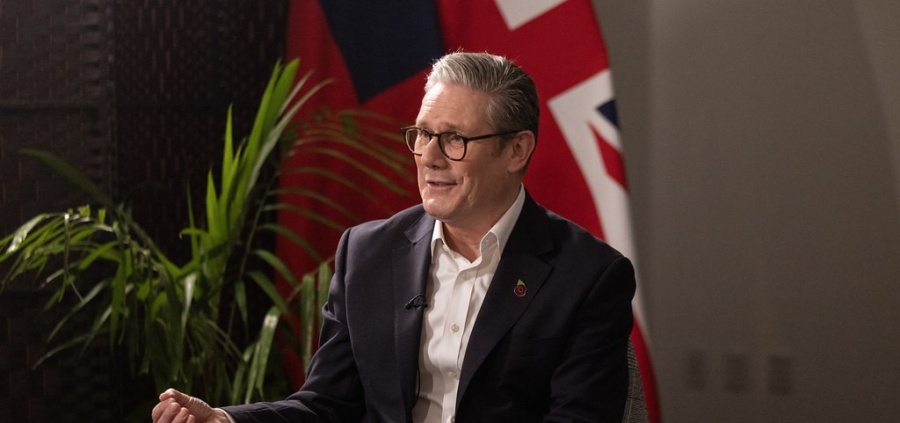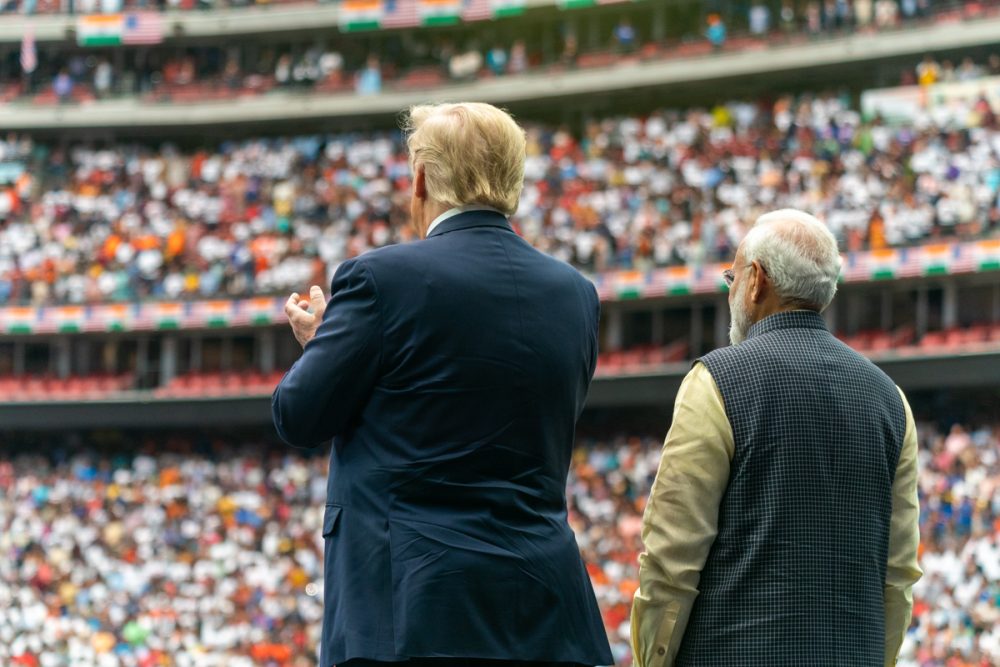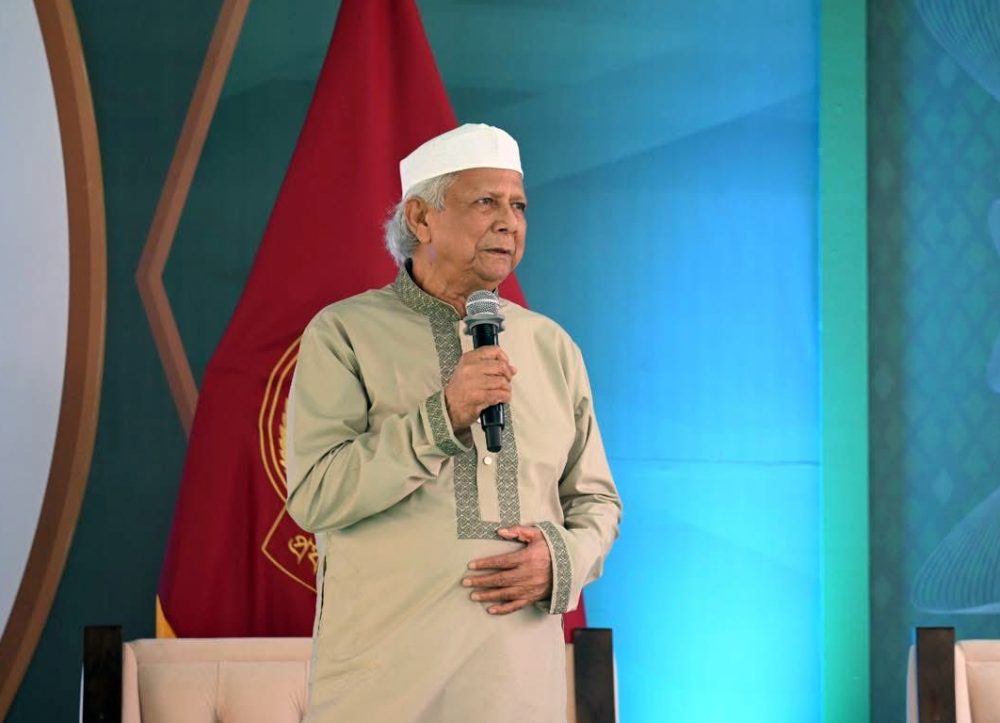The chancellor is expected to announce an increase to employers’ national insurance contributions on Wednesday in a move that could raise between £8.5bn and £20bn….reports Asian Lite News
Labour’s tax rises will not hit workers’ payslips, the education secretary has promised, as the government prepares to announce one of the most significant budgets in recent history next week.
Bridget Phillipson said on Sunday morning that the tax rises being planned by Rachel Reeves would not affect employees’ take-home pay, as ministers struggle to explain what was meant by their manifesto pledge not to increase taxes on “working people”.
The chancellor is expected to announce an increase to employers’ national insurance contributions on Wednesday in a move that could raise between £8.5bn and £20bn.
However, ministers say this would not break the party’s manifesto promise not to increase national insurance because raising employers’ contributions does not count as a tax on working people.
Phillipson told BBC One’s Sunday with Laura Kuenssberg: “What we set out in our manifesto was that we would not increase VAT, national insurance or income tax on working people. And coming out of this budget, working people will not see higher taxes in the payslips that they receive. That is really important, because we know the pressures that people are under.”
Reeves will on Wednesday present the first Labour budget in 15 years, which is likely to include about £40bn worth of tax rises and spending cuts, coupled with changes to the government’s debt rules to allow her to spend billions more on infrastructure in the long term.
The chancellor told the Observer this weekend her budget would be as momentous as any in the party’s history, saying: “In 1945, we rebuilt after the war; in 1964, we rebuilt with the ‘white heat of technology’; and in 1997, we rebuilt our public services.
The most significant tax increase is likely to be a 1p or 2p rise in national insurance contributions, along with a reduction in the threshold at which companies begin paying those contributions.
The chancellor is also planning to raise VAT on school fees, to increase inheritance tax on land and to raise capital gains tax on money made from selling shares.
The series of planned tax rises have led to a row over whether Labour is about to break the promises it set out before the election. In its manifesto, the party promised: “Labour will not increase taxes on working people, which is why we will not increase national insurance, the basic, higher, or additional rates of income tax, or VAT.”
Much of the debate has centred on what Labour meant by “working people”. The prime minister, Keir Starmer, attempted to clarify that last week by saying he used the term for people who earn money through work rather than from assets such as shares or property, though Downing Street later said that people who owned small numbers of shares could count as working people.
The row is causing worry among some in Labour. Peter Mandelson, the Labour peer and former cabinet minister, said he wanted to see universities reimbursed for the tax rise in the same ways that other public sector organisations will be.
Mandelson, who is running to be the next chancellor of the University of Oxford, said: “If the chancellor, as predicted, reimburses other parts of the public sector, including schools and hospitals but not universities from the impact of this tax hit, universities will be forced to reduce their contribution to lecturers’ and teachers’ pensions with calamitous consequences for future benefits.”
Andrew Griffith, the shadow technology secretary, told the BBC on Sunday: “You’re about to see a government come to office on the promise of no increase in taxation, no increase in borrowing – they’re about to break all of those promises.”
Meanwhile, Britain’s fiscal watchdog is to publish a detailed breakdown of the £22bn “black hole” that Labour says it inherited after Rachel Reeves presents the budget on Wednesday.
The Office for Budget Responsibility will release the conclusion of its review of how the forecast for departmental spending for its last economic and fiscal outlook, published for the March budget, was prepared.
The review has examined whether the information and assurances provided to the OBR by the Treasury regarding departmental expenditure limits ahead of the Conservatives’ final budget before the general election were adequate.
The review could help to clear up whether Labour was left, as Reeves claims, with a £22bn shortfall in funding to pay for public services this year.
Jeremy Hunt, the former Conservative chancellor, has protested about the OBR’s plan to publish the review on Wednesday, calling it “a surprise and a significant concern”.
Hunt, who claimed in July that the £22bn “black hole” was nonsense, said he had not been contacted by the watchdog or the Treasury about the review, even though he was running the finance ministry until the election in early July.
“As this covers my time as chancellor, as a matter of procedural fairness I would have expected to have been fully engaged with throughout the review and given the chance to address any criticisms made,” Hunt told the OBR chief, Richard Hughes, in a letter on Friday.
Hunt argues that the OBR is breaching the principle of political impartiality by releasing its work on budget day. “I had serious concerns about the way the report was announced on 29th July, done with no prior notice at the same time as a highly political statement from the chancellor of the exchequer in the House of Commons. The comments alongside that announcement gave the impression the OBR had prejudged the outcome,” Hunt said in his letter, published by the OBR on Sunday.














